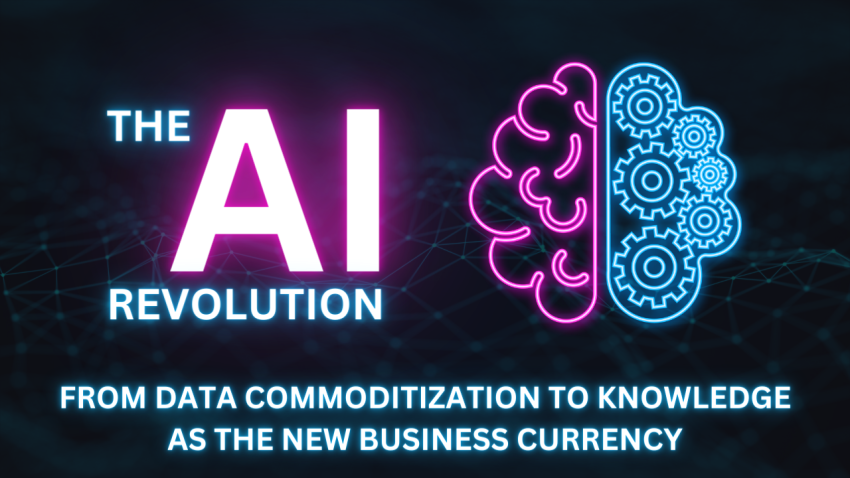In the current business milieu, data is often touted as the new oil, a critical commodity driving organizational success. However, as we gaze into the future, a paradigm shift is on the horizon: the transition from data as a primary asset to the commoditization of knowledge. This essay explores this impending shift, contrasting the current value placed on data with the future potential of commoditized knowledge. We will delve into how businesses can leverage this transition to enhance their success and value proposition in the market.
In today’s digital economy, data reigns supreme. Companies accumulate vast amounts of data, using it to drive decisions, understand customer behavior, and innovate products. This data-centric approach has led to significant advancements in personalization, efficiency, and market understanding. However, data alone, without insightful interpretation and application, holds limited value. The real power lies in the ability to transform this data into actionable knowledge.
As we look to the future, the focus is shifting from mere data accumulation to the commoditization of knowledge. Knowledge, in this context, refers to the insights, patterns, and wisdom derived from processed data, made actionable through AI and analytics. This shift represents a move from raw materials (data) to a more refined product (knowledge), offering higher value and utility.
- Enhanced Value Proposition: Knowledge commoditization enables businesses to offer more than just data-driven services or products; it allows them to provide wisdom-as-a-service. This could manifest as advanced analytics services, predictive modeling, and strategic insights, all of which carry a premium value in the market.
- Competitive Differentiation: In a world where data is increasingly ubiquitous, the competitive edge shifts to those who can most effectively convert that data into meaningful knowledge. This knowledge enables businesses to innovate, foresee market trends, and make more strategic decisions.
- Knowledge as a Service (KaaS): Just as Software as a Service (SaaS) revolutionized software delivery, Knowledge as a Service could redefine how businesses access and utilize expertise. Companies could monetize their proprietary knowledge, offering it to others in a scalable, efficient manner.
This shift is not without challenges. Key among them is ensuring the accuracy and integrity of the knowledge generated. As AI becomes more sophisticated in interpreting data, the risk of biases and errors in knowledge creation must be addressed. Additionally, ethical considerations around knowledge ownership and privacy become increasingly complex.
The future of business lies not just in data accumulation but in the effective commoditization of knowledge. This transition represents a significant opportunity for businesses to enhance their value proposition, offering not just data but actionable wisdom. As companies navigate this shift, they will need to focus on the ethical, technical, and strategic aspects of knowledge creation and utilization. Those who master this new currency of knowledge will be the trailblazers in the next era of the digital economy, setting new standards for innovation, efficiency, and market leadership.
